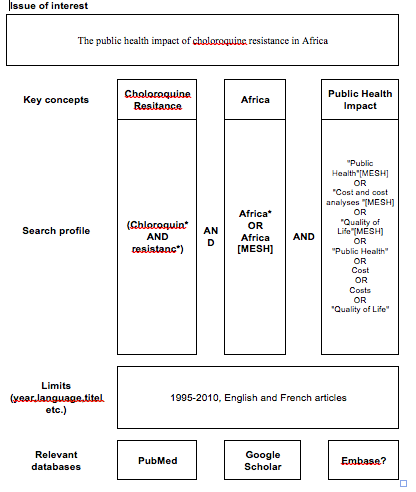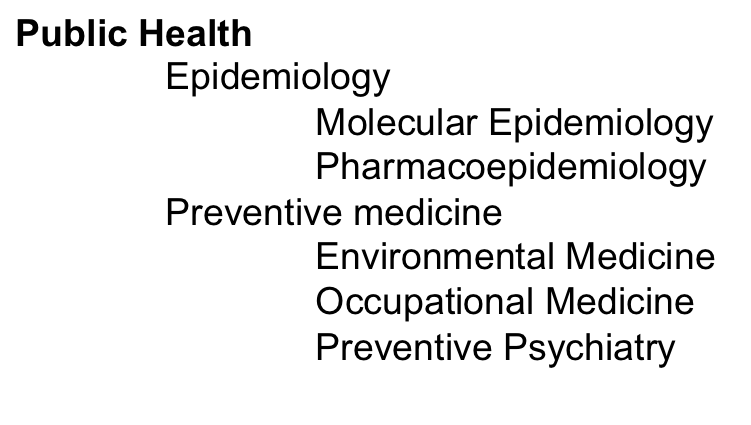Keep track of your search strategies
Your search should be reproducible and documentation of your literature search strategy – including your selection and exclusion criteria – should be part of your thesis.
Listen to what the Informaition Specialist has to say on this issue:
Many databases provide a save search feature if you create an individual user account. The easiest way to see if your search is reproducible is to ask a fellow student to perform your search and see if they receive the same results as you did.
Below you can see an example of a search planning worksheet that might be helpful for planning your search:
Click and see a video guide explaining this search.
The corresponding search string to the example above looks like this:
(Chloroquin* AND resistanc*) AND (Africa* OR Africa[MESH] AND ("Public Health"[MESH] OR "Costs and cost analyses "[MESH] OR "Quality of Life"[MESH] OR "Public Health" OR Costs OR Cost OR "Quality of Life")
You may ask yourself why are some search terms repeated as both free text searches and as Mesh terms?
Won’t searching for “Public Health” in quotes also find results with the “Public Health” as a Mesh and likewise with Africa*?
It will for “Public Health” – but it can still be a good idea for your own visualisation to enter the search term “Public Health” [MESH] so you are aware that you have also selected all of the following terms further down in the Mesh Hierarchy
When you use the search term Africa* – automatic term mapping is turned off, and although PubMed will find all of the articles that have been assigned the Mesh term “Africa” it will not include all of the countries in Africa without you having to search for each of them individually, which is why you should explicitly search for “Africa”[Mesh].
MOVE ON!
- Write down your search strategy before opening a database or search engine.
- Get an opinion on your search strategy from your library’s information specialist, librarian or your supervisor.






